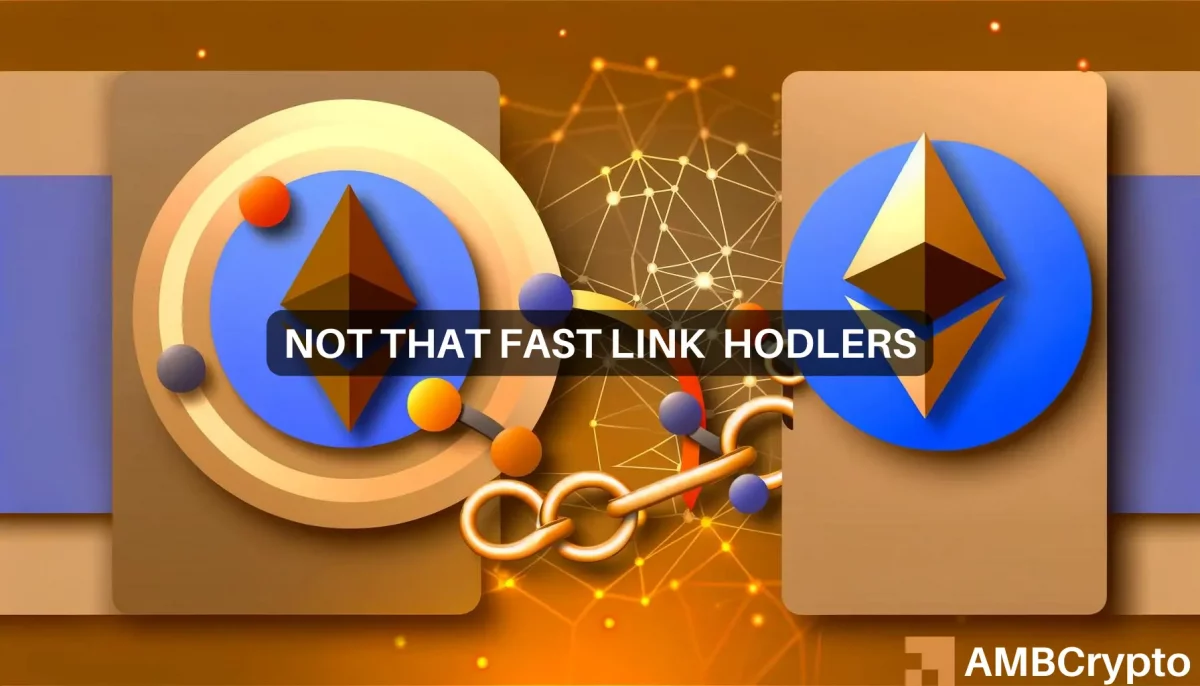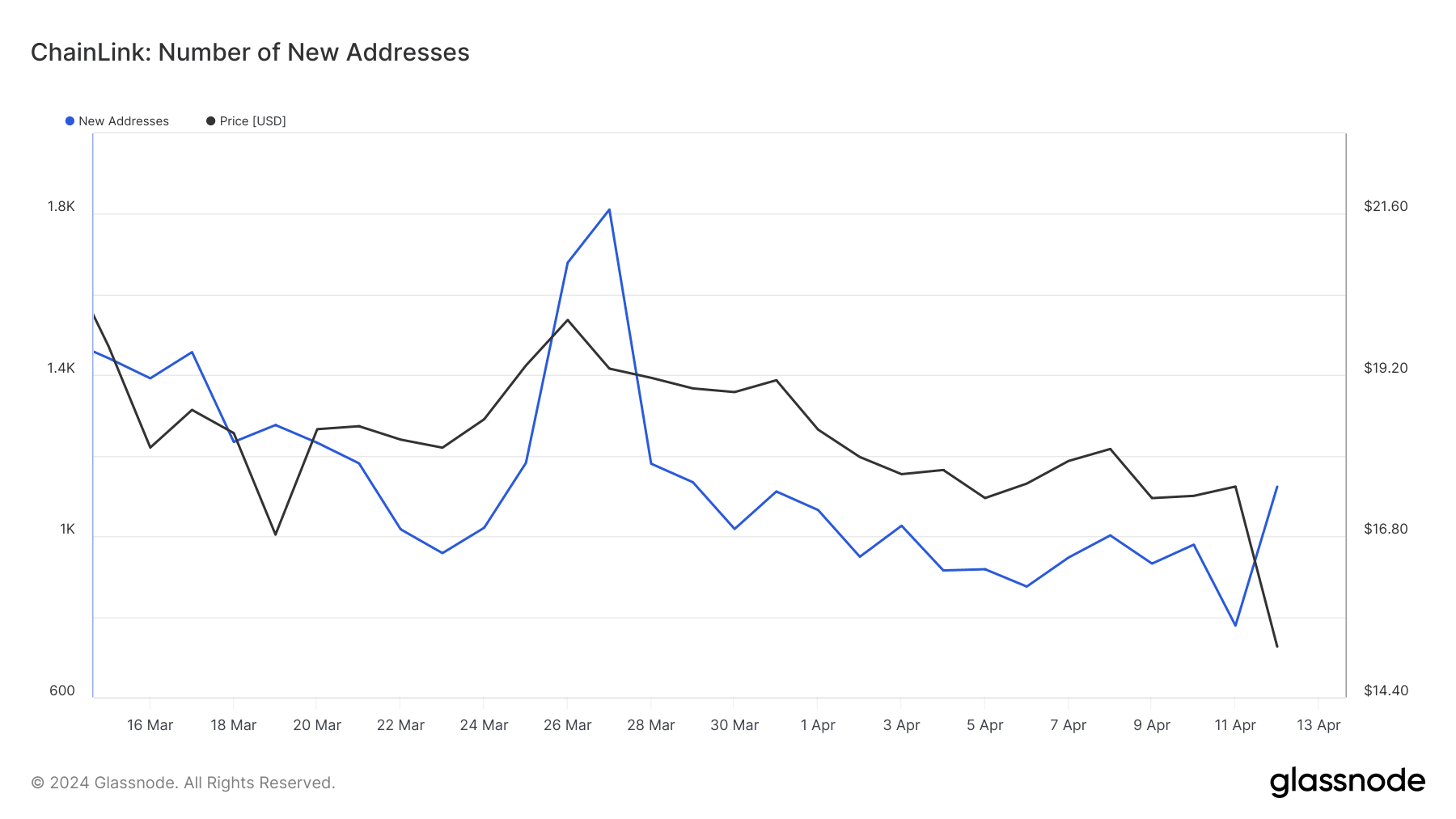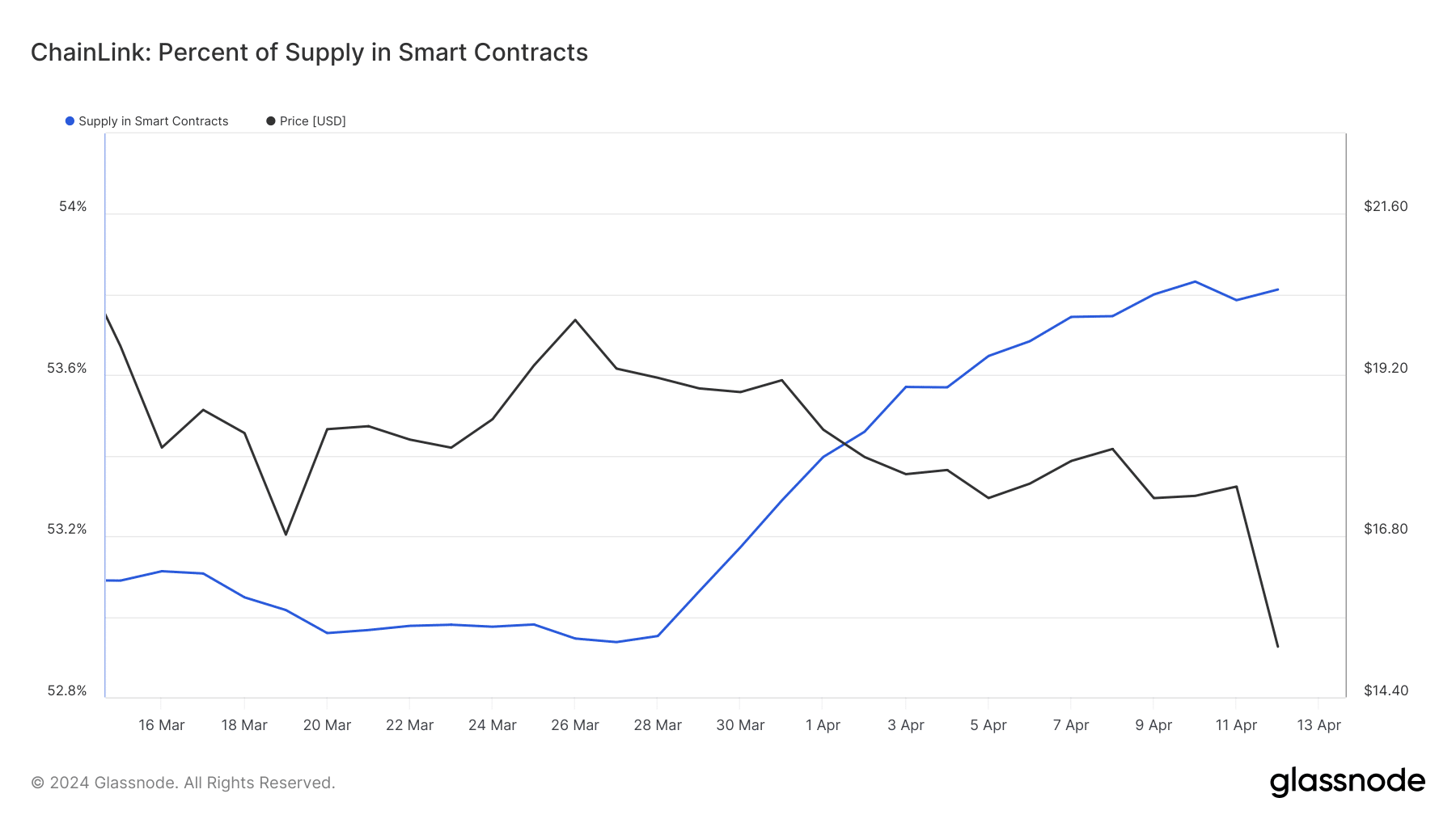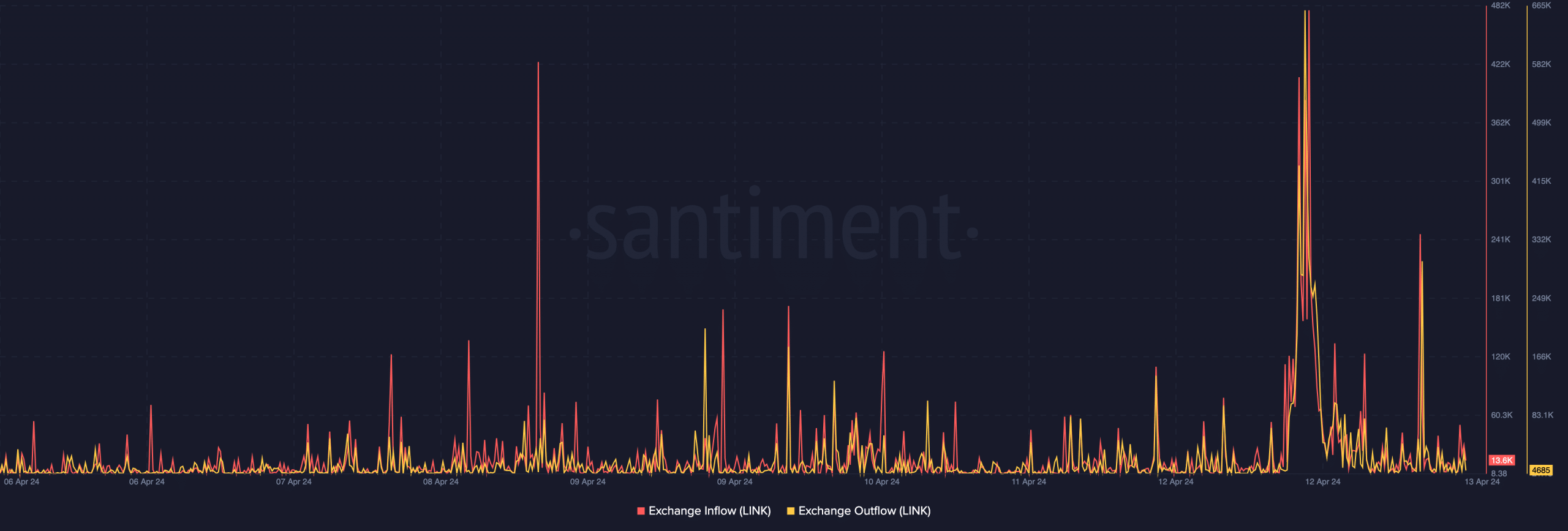Chainlink-Ethereum integration – Brace yourself for bad weather?

- LINK gained traction after the project disclosed the update with ETH cross-chain transfers.
- The price of the token might drop below $14 in the short term.
The number of new Chainlink [LINK] addresses has been increasing since the 11th of April, AMBCrypto discovered. According to Glassnode, new addresses on the network were 778 on the 10th of April.
But as of this writing, that number had increased to 1123. A rise in new entrants into a network is a sign of improved adoption, which could increase demand for the token involved.
More bridges, more expansion
Since hitting a yearly high in March, Chainlink had found it difficult to attract newbies to its ecosystem until recently. However, there were reasons attached to the increase.
According to AMBCrypto’s findings, it was no coincidence that the metric began to rise after the project’s recent integration with Ethereum [ETH].
On the same day LINK’s new addresses began to increase, Chainlink put out an announcement, noting that the CCIP has been extended to ETH and some Layer-2 networks under the blockchain.
CCIP is an acronym for Cross-Chain Interoperability Protocol. This protocol enhances the bridging of assets on multiple blockchains. In the recent announcement, Chainlink explained,
“This upgrade means that CCIP now supports the cross-chain transfer of native ETH between different blockchain networks, starting with Ethereum, Arbitrum, and Optimism, which is made possible by WETH lock and unlock token pools.”
However, an increase in traction was not the only after-effect of the development. AMBCrypto’s further examination showed that there was a change in the smart contract supply.
For those uninitiated, the introduction of Ethereum was what made it easy for other projects to allow smart contracts development.
On-chain data showed Chainlink’s supply in smart contracts was about 52% at the beginning of April. However, the supply had increased to 53.81% at press time.
Some things take time
With the increase, LINK holders might be able to bridge more assets to other chains, including Ethereum. But in the short term, LINK’s price might have to cope with the turbulence in the market.
This was because of the state of the exchange inflow and outflow. When exchange inflow increases, it means traders are contemplating selling their assets. But a decrease suggests otherwise.
For exchange outflow, an increase implies a decision to hold for potentially better gains. At press time, LINK’s exchange outflow was 4086 while the inflow was over 13,000 tokens.
Realistic or not, here’s LINK’s market cap in ETH terms
This disparity in these metrics was a testament to the sell-offs going on in the market. Should the inflow continue to outpace the outflow, LINK’s price might fall below $14.
However, if bears decide to halt selling, and bulls accumulate, the price might bounce.









